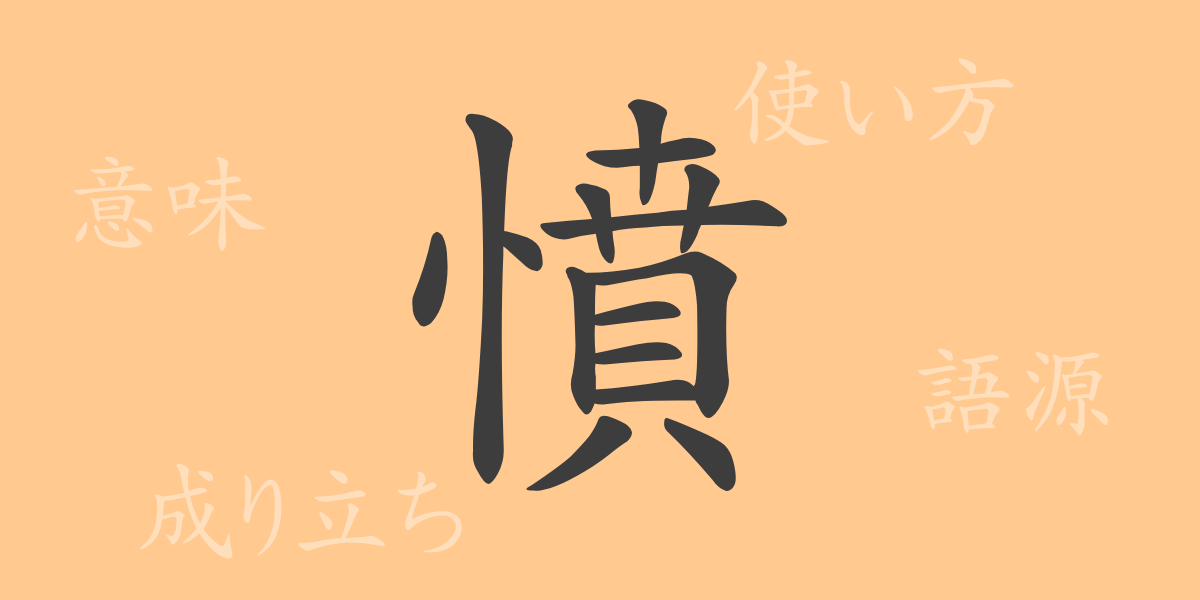In the Japanese language, there is a rich vocabulary that expresses emotions and feelings. Among them, the kanji “憤” (fun) has been used as a character that vividly expresses our strong emotions. In this article, we will delve into the meaning, etymology, usage, and related idioms and proverbs of the character “憤” (fun). Let’s explore the depth of emotions embedded in “憤” (fun), which is also known as a common kanji in Japan.
Etymology of 憤 (fun)
The kanji “憤” (fun) is a character that originated from ancient China, composed of “忄” (risshinben), which represents the heart, and “賁” (fun), which indicates the sound. Historically, it was used to express strong emotions such as anger and sadness accumulating in the heart, symbolizing the overflowing of these emotions. Over time, this character came to be used to indicate emotional movements and was also utilized as the verb “憤る” (ikidoru).
Meaning and Usage of 憤 (fun)
The kanji “憤” (fun) refers to feelings of anger or indignation toward injustice or wrongdoing. It is particularly used to express moral anger or strong emotions stemming from a sense of justice. In terms of usage, it is often found in expressions like “憤慨” (fungai) and “憤怒” (fundo) to convey emotions, making it effective in both writing and conversation to express strong feelings.
Reading, Stroke Count, and Radical of 憤 (fun)
In Japanese, the kanji “憤” (fun) has multiple readings.
- Reading: In on’yomi (音読み), it is read as “フン” (fun), and in kun’yomi (訓読み), it is read as “いきどおる” (ikidoru).
- Stroke count: The character “憤” (fun) is composed of 15 strokes in total.
- Radical: The radical of this kanji is “忄” (risshinben), categorizing it under characters related to the heart.
Idioms, Proverbs, and Phrases Using 憤 (fun)
Here are some idioms, proverbs, and phrases that include “憤” (fun).
- 憤慨 (fungai): Feeling strong anger or indignation.
- 義憤 (gifun): Anger or indignation stemming from a sense of justice.
- 憤怒 (fundo): Intense anger.
- 発憤忘食 (happunboushoku): Being so absorbed in something that one forgets to eat.
- 憤然 (funzen): Being filled with anger.
These idioms and phrases are used to express emotions in daily life and business scenarios.
Conclusion on 憤 (fun)
The kanji “憤” (fun) has been used to express strong emotions toward injustice and wrongdoing. Its rich expressiveness speaks to the subtlety of the Japanese language. Through this article, we hope you can feel the history, culture, and depth of emotions behind “憤” (fun) and acquire a richer means of expression.

























